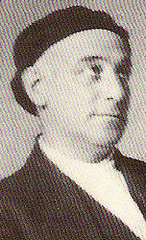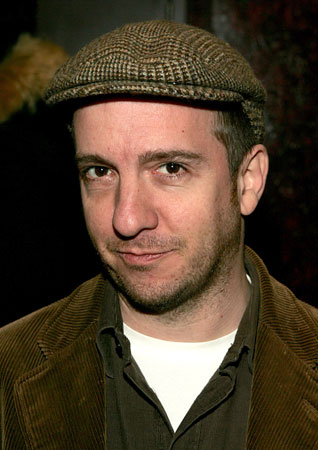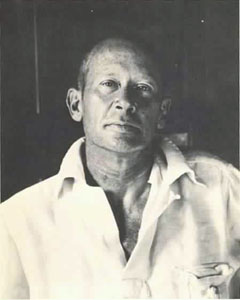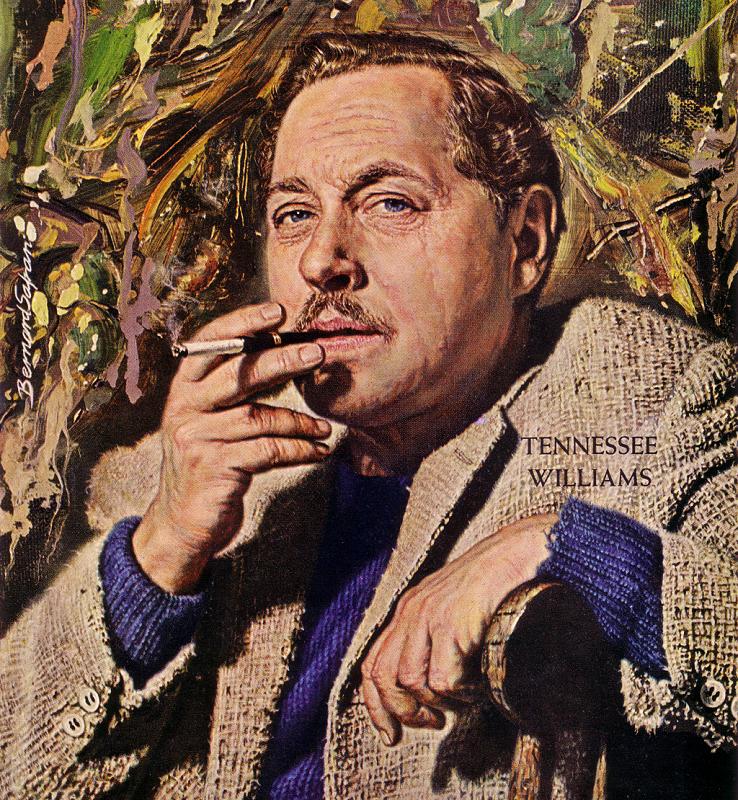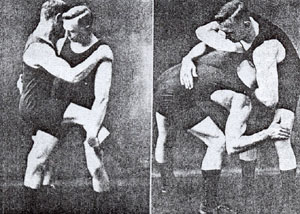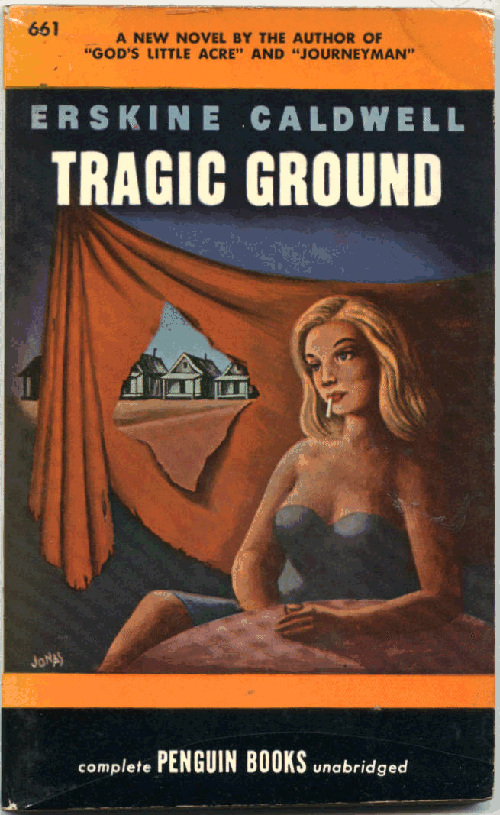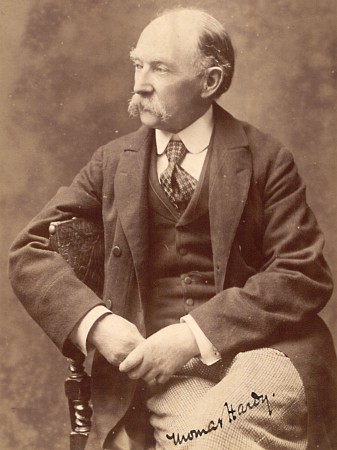 Taken from Les Chants de Maldoror (1869) by Comte de Lautréamont, translated by Alexis Lykiard; emphasis added. Warning: NSFW.
Taken from Les Chants de Maldoror (1869) by Comte de Lautréamont, translated by Alexis Lykiard; emphasis added. Warning: NSFW."Here comes the madwoman, dancing, while she dimly remembers something. Children drive off the crone with volleys of stones as if she were a blackbird. She brandishes a stick and looks like chasing them, then sets off again on her way. She has left a shoe behind and of this she remains unaware. Long spider's legs stir upon her nape: these are naught but her hair. Her face no longer resembles the human face and she bursts into fits of laughter like a hyena. She lets slip shreds of sentences which, re-stitched, would afford very few any clear meaning. Full of holes, her dress flaps fitfully about her bony and mudstained legs. She drives herself onward like a poplar leaf blown along by the whirlwind of unconscious powers — she, her youth, her illusions and the past happinesses she glimpses again through the mists of a demolished mind. She has lost her pristine grace and beauty; her bearing is base and her breath reeks of brandy. If men were happy on this earth, one ought then to be astonished. The madwoman makes no reproaches, she is too proud to complain and will die without having revealed her secret to those interested in her but whom she has forbidden to address her. Children drive the crone off with volleys of stones as if she were a blackbird. She has dropped a scroll of paper from her bosom. A stranger picks it up, locks himself in his room all night and reads the manuscript which runs as follows: 'After many barren years Providence sent me a daughter. For three days I knelt in churches giving thanks to the great name of Him who had at last answered my prayers. I suckled the one who was more than my life on my own milk, and saw her grow apace, endowed with every quality of my soul and body. She would say to me: "I'd like a little sister to play with. Ask God to send me one, and to pay him back I'll wind him a garland of violets, mint, and geraniums." My only answer was to raise her to my breast and kiss her lovingly. She was already interested in animals, and would ask me why the swallow is content to skim across the cottages of humans without daring to enter in. But I would lay a finger at my lips as if to tell her to keep quiet about this serious question whose details I did not want her to understand, in order not to impress an extreme sensation upon her childish imagination; and I hastened to change the subject — one painful to discuss for any being belonging to that race which has extended an unjust domination over the other animals in creation. When she spoke to me of the graves in the cemetery, saying that in this atmosphere one inhaled pleasant scents of cypress and immortelle, I refrained from contradicting her, but I did tell her that it was the town of birds, that there they sang from dawn till dusk, the graves their nests, where at night, lifting up the marble slabs, they slept with their kin. I sewed all the dear little clothes she wore, as well as the lace things with a thousand arabesques, which I reserved for Sundays. In winter she had her rightful place on the hearth, for she took herself very seriously, and during the summer the meadow once more knew the dulcet pressure of her footsteps when with her silken net fastened to a cane's tip she would venture forth after the independent hummingbirds and the butterflies with their teasing zigzags. "What have you been up to, little vagabond, while your soup waited an hour with its spoon growing impatient?" But she would exclaim, flinging her arms around my neck, that she could not go back there any more. The next day she would wander off anew through the daisies and mignonettes; amid the sunbeams and the mayflies' swirling flight; knowing only the prismatic glass of life — not yet its gall; happy to be bigger than the titmouse; making fun of the warbler for not singing as well as the nightingale; slyly sticking out her tongue at the nasty crow who would watch her paternally; and graceful as a kitten. I was not to delight in her presence for long. The time was approaching when, in an unexpected manner, she would bid farewell to life's charms, and abandon forever the company of turtle-dove, hazel-grouse, and greenfinch, the prattle of tulip and anemone, the counsels of the march-grass, the rasping wit of the frogs and the freshness of the brooks. They told me what had happened, for I did not witness the incident which resulted in my daughter's death. If I had, I would have defended that angel at the price of my very blood… Maldoror was passing by with his bulldog. He saw a young girl sleeping in a plane tree's shade and first he took her for a rose… None can conjecture whether the sight of this child or his resultant resolution rose foremost to his mind. He undressed rapidly, like a man who knows what he is about. Naked as a stone, he flung himself upon the young girl's body and pulled up her dress to attempt her virtue… in broad daylight! Not at all embarrassed, not he! Let us not dwell on this foul deed. His mind discontent, he dressed hurriedly, glanced cautiously at the dusty, deserted track, and ordered the bulldog to choke the blood-stained child with a snap of its jaws. He pointed out for the mountain-dog the spot where the suffering victim gasped and wailed, and drew aside out of sight so as not to witness the sharp teeth sinking into those rosy veins. Carrying out this order appeared to be hard for the bulldog. He thought his master was telling him to do what had already been done, and this wolf with monstrous muzzle in turn satisfied himself by violating this delicate child's virginity. The blood from her lacerated abdomen ran once again down her legs and on to the meadow. Her moans mingled with the animal's whining. The maid held up the gold cross she wore around her neck, so that he might spare her; she had not dared exhibit it to the savage eyes of him who had first thought of taking advantage of her tender years. But the dog knew well that if he disobeyed his master a knife thrown out of a sleeve would swiftly, without warning, rip open his guts. Maldoror (how loathsome to utter the name!) heard the death-pangs and was amazed that the victim was so hard to kill and was still not dead. He approached the sacrificial altar and saw the behaviour of his bulldog — surrendering to the lowest instincts and raising its head from the girl as a drowning man raises his above the wrathful waves. He kicked the dog and split open one eye. The crazed bulldog raced off across the countryside dragging after him — along a stretch of track that however short would always be too long — the little girl's dangling body, which was only disentangled thanks to the jerky motions of the flight; but the dog was scared to attack its master, who was not to see him again. Maldoror drew from his pocket an American pen-knife with ten or a dozen blades serving diverse purposes. He opened the angular paws of this steel Hydra and, equipped with one like a scalpel, and seeing that the greensward had not yet disappeared — dyed by so much spilled blood — readied himself without blanching to grope without blanching inside the unhappy child's vagina. From this enlarged trough he removed the internal organs, one after the other: intestines, lungs, liver, and finally the heart itself were ripped from their roots and pulled up through the frightful aperture into the light of day. The sacrificer perceived that the girl — a drawn chicken — had died long ago. He cut short the increasing persistence of his ravages and let the corpse again sleep in the plane tree's shade. The knife was found lying a few steps away. A shepherd witnessed the crime — whose perpetrator was not discovered — and only told it long afterwards when he had ascertained that the criminal had safely reached the frontier and that he himself need no longer dread the retribution certain to overtake him should he reveal all. I pitied the madman who committed this heinous, unprecedented crime which the legislators had not predicted. I pitied him because it is unlikely that he was in his right mind when he wielded the dozen-edged dagger, ploughing completely through the stomach lining. I pitied him because if he were not mad his shameful conduct must have hatched out of a great hatred for his fellows in order to rage so rabidly against the flesh and blood of a harmless child, who was my daughter. I attended the burial of these human remnants with mute resignation; and every day I come to pray over a grave.' On concluding his reading, the stranger can no longer keep his senses, and faints. He comes to, and burns the manuscript. He had forgotten this souvenir of his youth (habit blunts the memory!); and after twenty years' absence he returned to this fatal land. He will not buy a bulldog! … He will not talk to shepherds! … He will not go and sleep in the plane trees' shade! … Children drive the crone off with volleys of stones as if she were a blackbird." (112-116)
